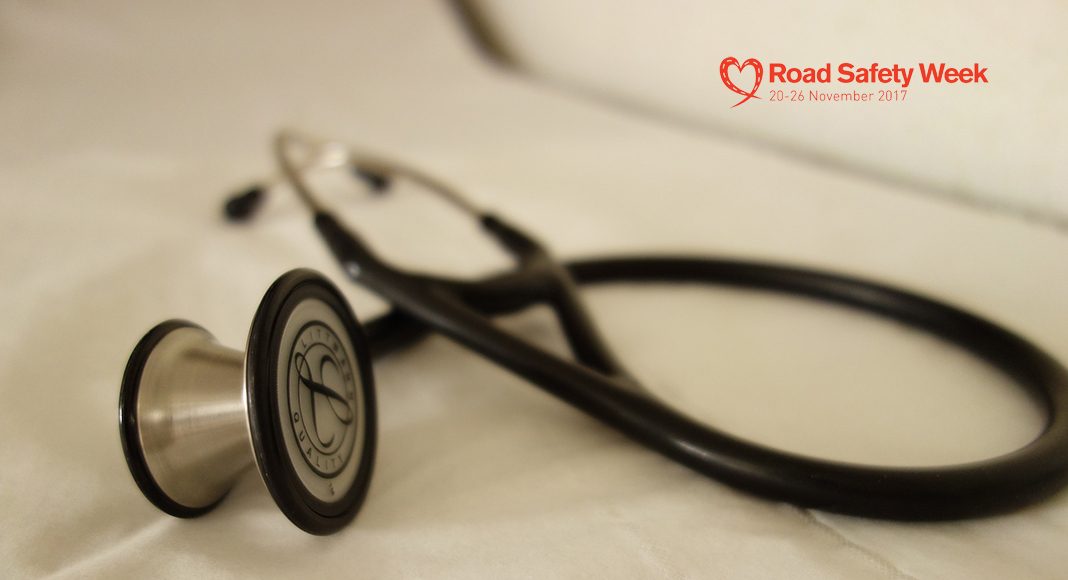One in five patients admitted to trauma centres in England and Wales last year were involved in road crashes, according to new figures obtained by road safety charity Brake.
Road collisions were the second largest cause of trauma admissions, after falls from less than two metres.
âNot only do needless road collisions cause untold suffering but they also place an enormous strain on the NHS and other public services,â said Jason Wakeford, Director of Campaigns for Brake. âSpeeding is a factor in many deadly crashes and remains a major problem.
âDriving is unpredictable and if something unexpected happens on the road ahead, such as a child stepping out from between parked cars, itâs a driverâs speed that determines whether they can stop in time and, if they canât, how hard they will hit. That’s why weâre encouraging everyone to âSpeed Down Save Livesâ for Road Safety Week this year.â
Brake commissioned an analysis by the Trauma Audit and Research Network, which records information about patients admitted to trauma centres in England and Wales. In 2016, 11,486 road users â the equivalent of 31 a day â were admitted to trauma centres with life-threatening injuries.
âWe know that injuries sustained following road traffic collision account for a significant proportion of seriously injured patients admitted to the Major Trauma Centre at North Bristol NHS Trust,â said Ben Walton, Adult Clinical Lead for Major Trauma in the Severn Area, hosted by North Bristol NHS Trust. âRoad traffic incidents have a serious, often devastating impact on individuals and their families. Even if people survive and make it to the Major Trauma Centre – where specialists work together to help treat their different injuries – the long-term outcome can still be life-changing. There are many ways in which road traffic collisions can be prevented. In particular we urge people to be mindful of the speed they are travelling.â
Brake is calling for a default 20mph limit in all built-up areas, increased enforcement and âIntelligent Speed Adaptationâ, which helps drivers stay within the limit, to be fitted as standard to new vehicles.
The analysis marks the start of Road Safety Week, which this year urges people to slow down to cut crashes and fatalities, and reduce the severity of injuries on roads.



















